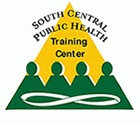
Cost-Benefit Analysis for Disaster Preparedness
Course Description:
This course explains what Cost-Benefit Analysis (CBA) is and how to use it to select the most worthy project(s) from a list of candidates. Because CBA makes the user define all costs and benefits in terms of dollars, it is useful for comparing projects that may have very different kinds of good and bad outcomes that will affect different parties. The course explains how CBA can be manipulated to make a project look good or bad and how to discourage such abuse by carefully specifying how data were obtained. Some alternative methods of evaluating projects known as Cost-Effectiveness Analysis (CEA) and Cost-Utility Analysis (CUA) are also explained. These latter methods are useful for comparing projects that have somewhat similar types of outcomes. The course gives several detailed examples of how to perform these analyses.
NOTE: This is a self-study course accompanied only by PowerPoint files, no audio or video files at this time.
Target Audience
Academic Faculty/Staff, Federal Government Employees, State Government Employees, Local Government Employees, Non-Government Employees and Students
Learning Objectives
- Understand what Cost-Benefit Analysis (CBA) is
- Understand why the Viewpoint and Time Frame of CBA are important
- Understand what kinds of data and information CBA requires
- Understand how CBA can be misused
- Understand some alternative approaches to determining the worth of projects
Instructor:

Stephen T. Mennemeyer, Ph.D.
Stephen T. Mennemeyer, Ph.D. is a health economist and professor in the School of Public Health at the University of Alabama at Birmingham. He has conducted a variety of studies relating to costs, benefits and effectiveness for the treatment of drug addiction, stroke rehabilitation, neonatal herpes simplex infection, clinical laboratory tests and Medicare claims processing.
Available Credit
- 3.00 Participation/CETulane Professional and Continuing Education (PaCE) awards 3.00 hour(s) of credit for completing Cost-Benefit Analysis for Disaster Preparedness
Price
Required Hardware/software
System Settings
This course is designed to work most effectively if your computer and internet connection meet certain minimal requirements. This course can be accessed using a Windows 10 PC or a Mac with High Sierra1, Mojave, or Catalina. Pop-up blockers should be disabled when viewing the course. Internet Explorer 11 (for Windows 10), or the current version of Google Chrome, Mozilla Firefox, or Apple Safari (for Windows 10 and or Mac) is required. Many of our courses require Java and JavaScript enabled.
Links to External Websites
Links to websites outside this course will open in a new window or tab. Some browsers may minimize the course window. If this occurs, maximize the course window to return to the course.
Adobe Acrobat Reader (for desktops and laptops)
Adobe Acrobat Reader is required to access some documents in this course. If you need to download a free copy of Acrobat Reader, click here.
Internet Connection Speed
A minimum download speed of 1.5 Mbps is recommended for an optimal experience, which is commonly the speed associated with a basic DSL or a cellular/satellite connection. A faster connection, such as cable or fiber service, with further enhance your online experience. A Wi-Fi connection is generally acceptable, but it is dependent upon one of the two services mentioned above. You can check your internet connection speed at http://www.speedtest.net/.

 Facebook
Facebook Twitter
Twitter LinkedIn
LinkedIn Forward
Forward